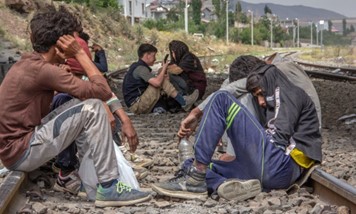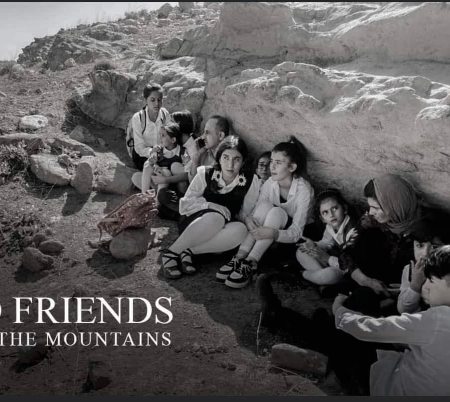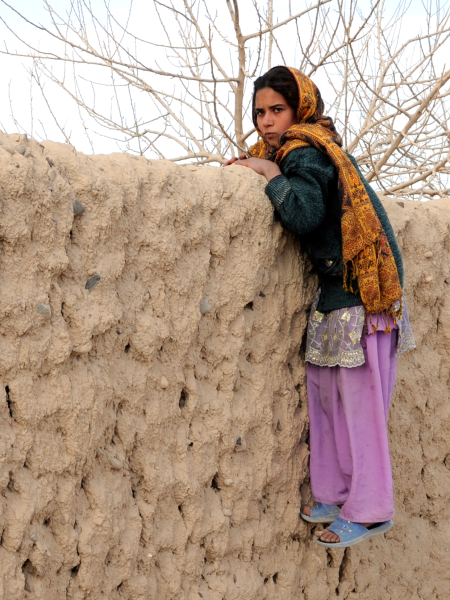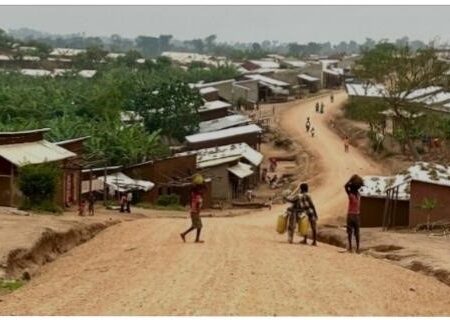History of the Talibans and how they have discriminated against Women
To begin with, who are the Taliban? They are extremist Islamist militants who want to impose their strict interpretation of religious law on Afghanistan. [Weigand, F., 2017, Afghanistan’s Taliban – Legitimate Jihadists or Coercive Extremists?, Journal of Intervention and Statebuilding, 11(3), pp. 359-381], who were initially students of Pakistani Religious schools which were funded by the United States.
The failed government of Ashraf Ghani, overwhelmed by corruption, caused once again the Taliban to govern over the suffering people of Afghanistan. Here’s some background to the latest developments on this issue, and why a return to the Taliban’s brutal rule has so many people fearing for the future of Afghanistan. There has been no change in the Taliban’s style of rule since their second takeover of this country. As was the case for their previous government, they have barred women from continuing their education and prevented them from working in government offices. After the Taliban’s second seizure of power, women did not acquiesce to them and started civil protests, but have been suppressed by the nation’s new rulers. Afghan women are risking their lives to publicly demand their basic right to work and receive an education. Since the Taliban takeover, women have been blocked from returning to their jobs, schools and universities. Generally, people are scared by the Taliban’s return to power.
The war that has been going on in Afghanistan for more than a decade has destroyed the infrastructure of the country and displaced a great number of people. The worst effect of this ominous phenomenon is the widespread violation of human rights, especially those pertaining to women. On this matter, the Taliban have always tried to ignore women’s rights and have endangered this vulnerable group. In the last twenty years, women have been able to create a good social position for themselves in society, as a result of their efforts. They pursued higher education and even worked in the highest government positions. But as a result of the inefficient and corrupt government that preceded their return to power, the Taliban were able to take back control of the country and impose their extremist laws on suffering Afghan women. Girls have been barred from attending school and pursuing higher education. Women have been barred from working outside of the home and defending their rights. The Taliban even suppressed the protesting women and threw some of them into their prisons. Females were forced to wear hijabs or burqas. Currently, women in Afghanistan are in a state of despair. A limited number of these vulnerable individuals were able to get themselves out of Afghanistan with the help of a humanitarian corridor. One of these Afghan women got herself out of Afghanistan with the help of an unconventional corridor coordinated by Sapienza University of Rome. [Shekiba Hajizada, interview by Robina Hajizada, Rome, Italy, May 1, 2022. ] She recounted her past life in Afghanistan with tears in her eyes. According to her, all Afghan women, trusting the pre-Taliban government, tried to continue their higher education both inside and outside of their country, so that they could achieve a decent social status in their society. Despite all the obstacles and hardships they faced, a high number of Afghan women were able to continue their higher education and worked in important government positions. But as a result of the shortcomings of the previously mentioned government, all the 20 years of achievements of Afghan women fell victim to the oppressive and murderous goals of the Taliban.
Furthermore, the interviewee described how women are discriminated against in Afghanistan. Ever since the Taliban took over Afghanistan, they have closed all gates of hope to women. Girls are not allowed to go to primary, secondary, and high school. Women have been barred from going to their offices. The Taliban have also closed the gates of higher education to women. Even when women have tried to defend their rights, they are prevented from protesting by the Taliban and even threatened with imprisonment.
She also described the living conditions of Afghan women in Taliban-controlled areas. The Taliban have always tried to regulate all the affairs of the people by the laws of Emirate Islam. In general, they requested that Afghan people abide by their religious rules. Women have been forced to wear the hijab, while men have been required to grow beards and wear hats. The extremists are preventing people from listening to music, watching movies, and going to theaters. They don’t allow women to go anywhere without their men (Mahram). They do not respect human rights and have secretly taken people who worked in Ashraf Ghani’s cabinet out of their homes and killed them. The Taliban have closed all judicial institutions and declared that Afghans don’t need these institutions because those who commit crimes will be simply punished by a field court.
To prove this, I met a woman who holds a bachelor’s degree in law from a university in Herat province and was forced to flee to Italy due to being threatened by the Taliban [Sherin Gul, interview by Robina Hajizada, Rome, Italy, May 6, 2022]. Once the Taliban returned to power, she realized that all the gates of hope were closed to her. She claimed the Taliban announced that the country doesn’t need courts nor lawyers anymore, and have even been trying to capture and assassinate the prosecutors and lawyers who worked for Ghani.
Just like Afghan women, Afghan-based Hazara people fear the Taliban, as one of the main goals of the latter is to eliminate them. Taliban and ISIS are the same in the eyes of the Hazara, who believe both these organisations harbour murderous intents against them. In August 2021, the Italian government managed to evacuate a small group of Hazara people through humanitarian corridors.
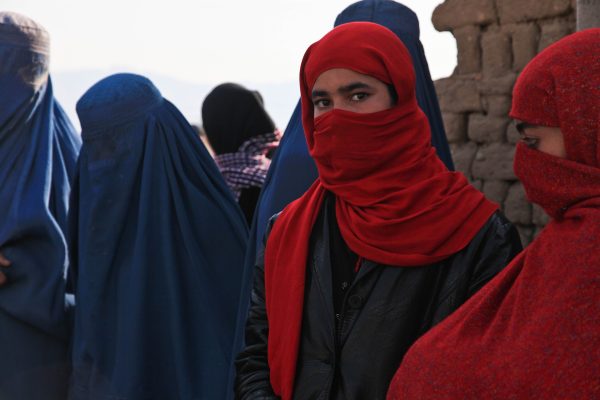
I was introduced to one of the Hazara women who suffered many casualties since the Taliban came to power. Her husband was an engineer, who was martyred by the Taliban for being Hazara. [Razia Ahmadi, interview by Robina Hajizada, Rome, Italy, May 12, 2022]. She worked as a representative of the Hazara people in the Herat province but was forced to flee her homeland due to numerous threats from the Taliban and was transferred to Italy, through the corridor mentioned above.
Looking at the Taliban’s policies and actions, we can also notice that the Taliban are upholding a spurious understanding of the message of Islam. Indeed, their notion of Islam is something that they have created just to gain power and stabilize their rule. They are claiming that they are the followers of the holy book (the Quran) but, in reality, all the brutality they are unleashing is not something to be found in the Quran, as there is not a single verse in this book to support their ideas. For instance, in Islam it is obligatory (fard) for men and women to go to school but as we can see the Taliban have banned women from doing so. Additionally, they say women cannot work with men, or can work just in some sectors, and only together with other women, while the Prophet Muhammad’s wife was actually a businesswoman [Biography of Khadijah from Encyclopedia Britannica, online edition]. It should be noticed that the Taliban’s course of action fosters many negative perceptions about Islam because it encourages many Westerners to believe that all Muslims are terrorists. While, if you deeply study the Islamic religion, you can differentiate between it and the way that people like the Taliban have misused it and represent it.
The Humanitarian Corridor Program
First of all, we should give a brief introduction to the concept of humanitarian corridors, protocols based on a memorandum of understanding usually signed by public authorities and humanitarian organizations. In November 2021, a protocol of agreement was signed in Italy, to ensure the arrival, through official humanitarian corridors, of 1,200 Afghans who needed international protection. The goal of this agreement is to open legal pathways to Italy, over the coming two years, for Afghan citizens coming from Pakistan, Iran, and other countries that have provided initial asylum to these refugees, or countries of transit, with the possibility of extending the duration of such pathways to 36 months [Agreement signed between the Italian Ministry of the Interior and several ONGs on November 4, 2021].
“This protocol stems from a feeling that emerged in the Italian people in August while looking at the dramatic images from Kabul. We wanted to give an answer to those who had remained in Afghanistan and to those who had managed to reach the neighboring countries” [Marco Impagliazzo, President of the Community of Sant’Egidio, Rome, November 4, 2021].
After the Taliban took over Afghanistan, the international community, NATO, the United States, and several States of the European Union put in place evacuation transfers for eligible persons from Afghanistan to other countries, especially women. “Huge numbers of Afghans have also escaped the country and crossed international borders. Reports indicate that during just the four months from October 2021 to January 2022, more than 1 million Afghans from the southwest of the country fled into Iran. Significant numbers of Afghans are also traveling overland to seek refuge in Pakistan” [Davon Cone, Refugees International, Washington DC, April 1, 2022].
Sapienza University is one of the prominent institutions that has been able to enrol a considerable number of Afghan youths, from August 2021 until now. It has transferred them from Afghanistan and neighboring countries to Italy, with the help of a set of special scholarships granted by the Latium region. [Nicola Zingaretti, Regional decree n°644, October 5, 2021]. A small team from the University was involved in this procedure, mostly made up of volunteering students.
I met a member of that team, a student herself, and she explained their humanitarian activities as follows. [Lucia Mazzanti, interview by Robina Hajizada, Rome, Italy, May 20, 2022]. The interviewee said that last year she and the rest of the team were on vacation. August 15, 2021, the day Kabul fell to the Taliban, is a summer vacation day in Italy. Professor Mara Matta (an active professor at Sapienza University) got in touch with her while the Taliban were taking over Afghanistan, and said that she was following what was happening over there on TV, while also explaining what she planned to do in order to help the Afghan people, especially young generations. The interviewee then told Professor Matta that she was willing to help the Afghan people, together with some of her fellow students. The next day Professor Matta called her back and told her there was a possibility to enrol young Afghans at Sapienza, although this university’s enrolment procedure had already been closed two months before. Matta decided, in agreement with the Rector of Sapienza University, to open up again enrolments for the program she oversees, a BSc in Global Humanities, to enrol Afghan students in danger, especially girls. Many students got in touch with the volunteering team through WhatsApp, and asked for permission to enrol in this program. In a couple of days, those prospective students increased further in number. This initially small group of students became very big, and it continues to interact with the Sapienza relief team to this day, asking the latter about enrolment procedures, visa issues, and disclosing individual fears and hopes to it. Additionally, in September 2021, the Sapienza team managed to strike a deal with international institutional bodies to bring a small number of Afghan families in Italy, such as the one of my first interviewee. In this process, Professor Mara Matta cooperated extensively with the team because she is not only a professor in a prestigious Italian university, but has also been previously involved in helping refugees in Italy and working closely with migrants and ONGs for a long time, thoroughly cooperating with humanitarian organizations. The Rector and the vice-chancellor of Sapienza University helped the team overcome some of the bureaucratic issues they were facing while working to set up humanitarian corridors for Afghan students and their families.
According to my interviewee, the team didn’t achieve a full measure of success, because, for her, the latter would ideally consist in managing to ensure that any Afghan facing Taliban hostility is able to reach Italy. She is nevertheless very grateful because at least the team was able to get some Afghan people in this country. I know some of these refugees personally and have lunch with them, so in my opinion the team was ultimately successful. Sapienza University is a prestigious Italian public university in Rome, which, from August 2021 until now, has been able to transfer a number of Afghan students from their nation or the latter’s neighboring countries (such as Pakistan and Iran) to Italy, admitting them to its study programs.
My interviewee wanted to help Afghan people for many reasons. First of all, she worked with different humanitarian associations for 20 years as a volunteer, hence just wanted to do something for the community. Her second reason is a personal one, because, at the beginning of her first year of university, she met some Afghan students, one of whom is still a good friend of hers. A strong link was made by her with this friend, whose family was stuck in Kabul. She couldn’t ignore that fact. Finally, she is studying Global Humanities, including the theoretical and technical aspects of solidarity between different peoples and countries, hence has become especially receptive to the importance of transnational humanitarian efforts.
I came across an Afghan student who was recently transferred from Pakistan to Italy by Sapienza University. [Ayaz Mia Khil, interview by Robina Hajizada, Rome, Italy, May 25, 2022]. He is disoriented by Italy – especially Rome – which he finds too vast. Also, it is a country with a strong historical heritage. Furthermore, he realized that the people of this country are very kind, intelligent, and lovely. To start his new life here and get familiar with the new culture and education system of this country, he is very interested in having good communication with Italians. He said that it had been his wish for a long time to come to Italy. He got his bachelor’s degree in 2019 and later applied for MScs at Italian universities, but unfortunately, due to the Coronavirus lockdown, he initially could not be admitted to any such institutions. Luckily, three months ago he got admitted to one of these universities and came to Italy, especially thanks to the efforts of Sapienza University’s team. He added that since his childhood he has heard and listened to many stories about Rome, in movies and books. It was his biggest wish to see Italy, especially the city of Rome. Actually, he is very happy to stay in Rome and pursue his higher education, and feels very lucky. Furthermore, he is very fond of Afghan music and plays the Rubab, one of the traditional Afghan musical instruments, wishing to practice Afghan music in Italy and merge it with local music.
Concerning his path to coming to Italy, thanks to Sapienza University he was granted one of the special Latium region’s scholarships, just as in the case of some of the other afghan students who were stuck in Afghanistan or who were staying in neighboring countries like Iran, Pakistan and Turkey. Firstly, he received an email from professor Mara Matta, which requested him to follow the University’s instructions. After that, he stayed in touch with the volunteers’ team by phone, text messages and emails. Finally, Sapienza University collaborated with the Italian Embassy in Pakistan and this joint effort granted him not only his study visa but also travel insurance and a plane ticket for Italy.
I was very keen to introduce myself to and have a short meeting with Professor Mara Matta and fortunately I was given the opportunity to talk to her. [Mara Matta, interview by Robina Hajizada, Rome, Italy, June 18 , 2022]. On August 15, 2021, when the Taliban took over Afghanistan, she decided it was necessary to collaborate with other organizations and get Afghan youths out of their nation. The main reason she helped create this unconventional humanitarian corridor is that she is an understanding and experienced professor of Sapienza University and is teaching theoretical humanitarianism, so she decided to put this critical theory into effect, not only showing empathy to endangered people but acting upon such feelings. She didn’t follow any specific strategy, instead using improvised decision-making.
She explained to me how the humanitarian corridor she oversaw came into being. Creating it required a lot of effort. Extensive talks took place between different leading governmental organizations and several institutions, including Sapienza University. The major difficulty Matta experienced was that some of the organisers of this university corridor didn’t think about how to make it fully sustainable, hence refugees from Afghanistan and other countries suffered various emergencies while moving to Rome that were not covered by the scholarship they had been previously granted. Nevertheless, Sapienza University and the Latium region managed to provide a single-year humanitarian scholarship for 36 Afghan youths, with the help of the Italian ministries of education and foreign affairs, a scholarship that includes accommodation and pocket money, the same kinds of benefits granted to Italian students.
Matta pointed out that the implementation of this humanitarian initiative has entailed both successes and setbacks. The former consist in transferring, by creating this path or link, nearly 60 Afghans to Italy, which in time might hopefully increase to at least 100. The main setback consists in the fact that, while in the early stages of the corridor the Sapienza relief team managed to evacuate a small group of students and their families, it was later left to help these refugees without extensive external support, and the main financial support it can provide to these students consists merely in the previously mentioned scholarships.
Conclusion
As it is indicated above, the Taliban represent an armed group with extremist Islamist ideas. They are creating misconceptions about the Islamic religion just in order to have control over the Afghan people and gain power. After the Taliban once again came to power in the country, on August 15, 2021, they reversed the advances in women’s rights that were the most significant achievements of the post-2001 reconstruction. They have closed all girls’ high schools. Women have been largely barred from working out of the house, for instance in governmental and international organizations. Humanitarian corridors, especially those organized by the Sapienza University, have played an important role in bringing Afghan people to safety in Italy.
The findings of this research, including the information collected through my interviews, ultimately suggest that, for humanitarian reasons, the international community should not leave Afghan women alone, nor recognize the Taliban government; these findings also emphasise that spontaneous humanitarian initiatives promoted by willing educational institutions and citizens’ activism could and should be included in the historical recollection of these events, and be structurally involved in political, social, humanitarian operations instead of being left out, obscured or even obstructed.
Bibliography
BBC. (2021, August 18). Afghanistan: How could Taliban rule affect women, girls and education? CBBC Newsround.
https://www.bbc.co.uk/newsround/58231537.amp
Cole, J. R. I. (2003). The Taliban, Women, and the Hegelian Private Sphere. Social Research, 70(3), 771–808.
http://www.jstor.org/stable/40971640
Cone, D. (2022, April 1). Now there is nothing safe. A roadmap for investing in Afghan women and girls. Refugee International.
https://www.refugeesinternational.org/reports/2022/3/30/now-there-is-nothing-safe-a-roadmap-for-investing-in-afghan-women-and-girls
Coulson, A. (2004). Education and Indoctrination in the Muslim World: Is There a Problem? What Can We Do about It? Cato Institute.
http://www.jstor.org/stable/resrep04885
de Leede, S. (2014). Afghan Women and the Taliban: An Exploratory Assessment. International Centre for Counter-Terrorism.
http://www.jstor.org/stable/resrep17470
Impagliazzo, M. (2021, November 4). A new protocol to save 1,200 refugees from Afghanistan. Sant’Egidio Community.
https://www.santegidio.org/pageID/30284/langID/en/itemID/45021/A-new-protocol-to-save-1200-refugees-from-Afghanistan-Marco-Impagliazzo-welcoming-and-integration-through-Humanitarian-Corridors-a-model-for-Europe.html
Mackintosh, B. C. E. (2021, December 4). Taliban decree on women’s rights, which made no mention of school or work, dismissed by Afghan women and experts. CNN.
https://amp.cnn.com/cnn/2021/12/03/asia/afghanistan-taliban-decree-womens-rights-intl/index.html
Samar, S. (2019). FEMINISM, PEACE, AND AFGHANISTAN. Journal of International Affairs, 72(2), 145–158.
https://www.jstor.org/stable/26760839
Weigand, F., 2017. Afghanistan’s Taliban – Legitimate Jihadists or Coercive Extremists?. Journal of Intervention and Statebuilding, 11(3), pp.359-381.
https://www.tandfonline.com/doi/full/10.1080/17502977.2017.1353755
Zeidan, A. (2019). Khadijah | Biography, Women, & Islam. Encyclopedia Britannica.
https://www.britannica.com/biography/Khadijah
Zingaretti, N. (2021, October 5). Decree DGR n. 644
https://www.regione.lazio.it/sites/default/files/sedute-giunta/ODG_20211005_PRINCIPALE.pdf_0.pdf


